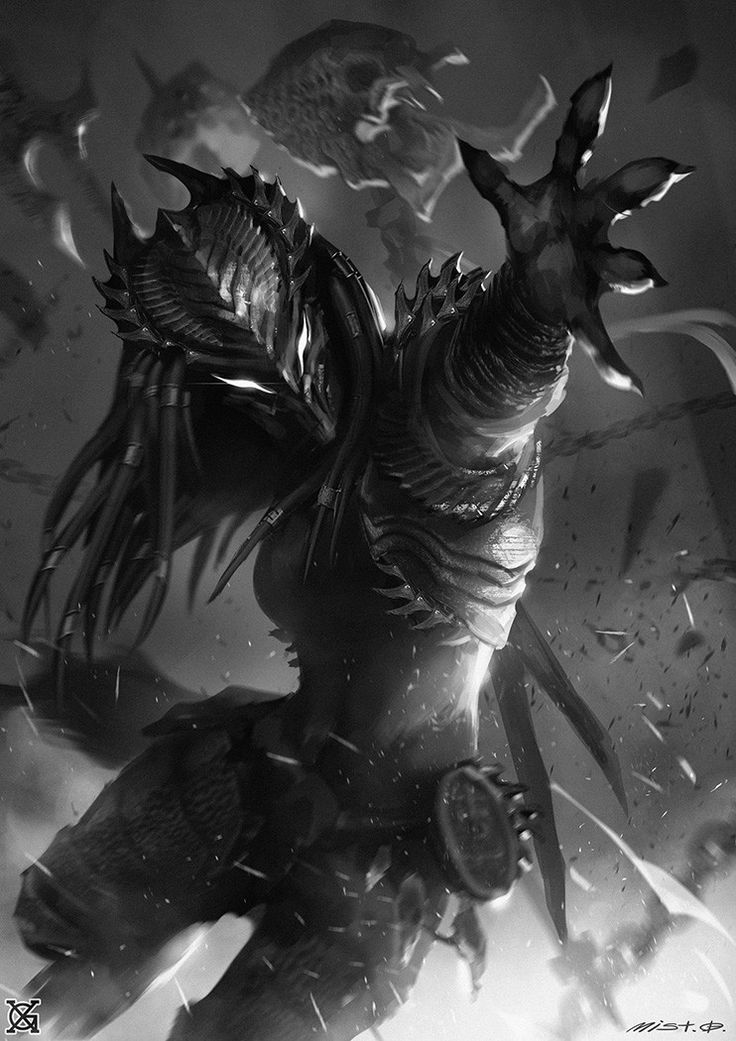
Extra Fields
If you were to ask the Ru'utkar today, there is only one Ru'utkar race. To a degree that's true - due to the intermingling of blood between the two races, there are no completely pure humans or completely pure Ru'utkar - and the race has not progressed to the point where it's completely intermingled the two into one. Academics of the outside races note that there are three varieties of Ru'utkar: The Ru'tan, the Ru'utha, and the Ru'utin.
The Ru'tan are for the most part almost entirely human in nature. They have some elements of their Ru'utkar ancestors, but these don't manifest in any element that couldn't be seen in a normal, sturdy human. They tend to be fluid and predatory in their movements more than a normal human, and some have eyes, hair, or teeth which reflect their ancestry. The average physical trait for the Ru'tan is 3, not 2 even if the maximums remain the same. Their blood is a darker shade of red than normal humans All Ru'tan can mate with the other Ru'utkar, requiring no blessing or occultic alteration from their heritage. The Ru'tan are capable of Awakening and becoming Uratha if they garner the attention of one of the two Moon God - El'ar and Telduine - nearby.
The Ru'utin are the original Ru'ukar before the humans co-mingled into the race. Hideous by human standards, the Ru'tan seem to have no issue finding them as partners - a fact that often disgusts outsiders who do not realize they all come from the same fold. They larger than humans and typically physically more resilient, with scaled skin, manibles, and green blood - the more human blood in them, the darker green the blood.
Ru'utin Qualities: The Ru'utin gain a free dot of strength and stamina at character creation, as well as a specialty in Survival, and another specialty in Athletics, Brawl, Intimidation, Survival, or Weaponry. Their physical attributes maximum is 6 instead of 5. Any willpower spent towards a brawl attack gain +5 dice instead of +3. By spending 5 merit points, they may gain another additional dot in any physical trait which raises it's maximum by 1 more. They reduce all damage inflicted on them by 1, though the visual effects of that damage are still evident. Their Mandibles may be used to bite and have a weapon rating of 1L. Additionally, their massive strength allows them to increase the weapon rating of any attack they make with a weaponry, brawl, or athletics roll. They do not have the capacity to Awaken or undergo First Change.
The Ru'utha are the truly mixed ones, and often pointed at as the ideal representation of their race - the comingling of the ancestries of the greatest warriors bound into one form. The Ru'utha are only slightly weaker than the Ru'utin due to the human heritage, but can and often do become a bizarre and alien form of Uratha that is to Uratha what the Ru'utin are to humans. It is unknown if they can Awaken, though the elements of the Arrow which reside in the sector are certainly curious in that matter. Physically, the Ru'utha are mostly humanoid, with no mandibles but what seem like long fangs or tusks. They seem to have tendril like dreadlocks that mold into the skin, and a scaled body. Their blood is almost pitch black like oil.
Special: The Ru'utha gain a free specialty in survival, and an additional one in Athletics, Brawl, Intimidation, Survival, or Weaponry. Any willpower spent towards a brawl attack gain +5 dice instead of +3. The Ru'utha's physical trait maximums are all 6. They have the capacity to undergo the First Change and do so quite frequently, though their form looks like an alien, mutated wolf. They reduce all damage inflicted on them by 1, though the visual effects of that damage are still evident. Their Mandibles may be used to bite and have a weapon rating of 1L. Additionally, their massive strength allows them to increase the weapon rating of any attack they make with a weaponry, brawl, or athletics roll. If a Ru'utha becomes one of the Uratha, their physical maximums are always increased by one higher than their primal-urge based rating.
All three races to the last drop are considered wolf-blooded, and those who are not a member of a greater supernatural template have at least 1 Tell.
Culture
The Ru'utkar are highly tribal and venerate their ancestors. They follow the laws of might makes right, and their laws and trials are almost always trial by combat. They do have concepts of art and beauty, but strength is always the most honored and revered trait a warrior can have.
All Ru'utkar undergo a sacred rite of passage when they come of age: the D'rora. A group of warriors are dropped off, abandoned in a desolate location and given the task of hunting a particular prey in that location. In ancient times, they would be expected to return to the tribe on their own, but this is not feasible when the locations are now different planets with environments that the warriors are not familiar with. In these times, they are given a time limit before the mothership returns in which they are expected to return with the trophies of their kills. Upon their return, they are given their Ru'utkar armor and considered a full member of society - though that presumes that they succeeded in the hunt. Those who return from the D'rora with no trophies to speak of are treated as pariahs amongst the people - weak and incapable, not children yet less than a warrior until they ahev succeeded in gaining a trophy. This same logic applies to those who return with a trophy of a docile prey that poses no risk - though Ru'utkar have been known to abandon the pariah or outright kill them if they try to pass such prey off as something more than what it was.
After the D'rora, the Ru'utkar continue to hunt for sport, glory, honor, and renown - though their armor grants them unparalleled capability that has been said to put even a normal warrior on par with a Uratha. They gain the ability to undergo trials by combat against other citizens, as well as trial by combat to prove themselves to potential mates. The armor also serves as the only form of fashion that the Ru'utkar seem to embrace - when not armored, they tend to wear either a loincloth or nothing at all - though clothing has been re-adopted recently for some tribes who make their way to tundra planets.
Relationships are determined by a mixture of mutual interest, social pressure, and ultimately strength. Females who wish to bear the line of a strong male need only defeat that male in combat. Socially speaking, the Ru'utkar see no reason why the male would refuse to accept his seed being carried in a strong vessel, unless another male has taken interest in that female.
When two or more males desire the same female however, or the female desires another male it gets a bit more complicated. The males can undergo a trial, and at the end the victor is the only one who is deemed worthy to pass on their gene through the female. This doesn't stop the female from being with her preferred partner, but only the strongest actually has the right to set his seed. Some warriors permit the female to bear a child with the lesser warrior both as a kindness and acknowledgement of the lesser's strength, but only after at least one child - such children are treated as lesser compared to the stronger, in the same way that a bastard child might be compared to a legitimate one. In most cases however, the lesser male either is forced to choose a different female whose competition he can defeat, or ends up serving as a parent to the children of the victor and the female while they continue the sacred hunt.
The Ru'utkar are - with the exception of certain tribes on the planet - a race with an ingrained sense of honor. Their cultures and philosophies follow the laws of might makes right, but those same laws are tempered by an understanding of certain rules and fundamental principals. While each Ru'utkar tribe or individual may have their own personal code of honor, most tend to acknowledge the following: The Ru'utkar do not hunt weak prey. It is seem as the height of cowardice to kill a child or someone whose only attempting to protect their young, and the Ru'utkar will go out of their way to ignore such defenseless entities or - if they are armed and fighting - remove their weapons before continuing their hunt. This tends to apply to beasts as well as sentient life. In the Ru'utkar culture, this also prevents a warrior from undergoing the Ta'Shezkar - or ritual combat - with someone who has not undergone their Drora, as well as one who has lost the ability to fight. The Ru'utkar are known to adopt the young of species who they have orphaned during their hunt - especially if that youngling displays rage and a desire to kill the Ru'utkar for their actions more than the fear that most would show, or those who place themselves between even weaker younglings from the same brood. It is said one of the few times you know a Ru'utin is smiling is when the child of one of their hunts challenges their murderer, even knowing that victory is impossible. Of course, being adopted into the Ru'utkar could easily be seen as a death sentence unto itself - but if the youngling is strong enough and sentient, and undergoes the D'rora, they are adopted fully into the tribe. To the Ru'utkar, battle is a sacred and spiritual affair. When two foes challenge one another, it is dishonorable to step in and assist. A Ru'utkar is expected to win their own battles, and not hang off the coattails of those who are stronger. In their culture, they honor the Ta'Shezkar - a ritual of combat - and use it to settle disputes as well as to earn the right to spawn. The Ru'utkar do not accept cowardice. What is won by Ta'Shezkar should not be taken except by Ta'Shezkar.
(More to write later)

